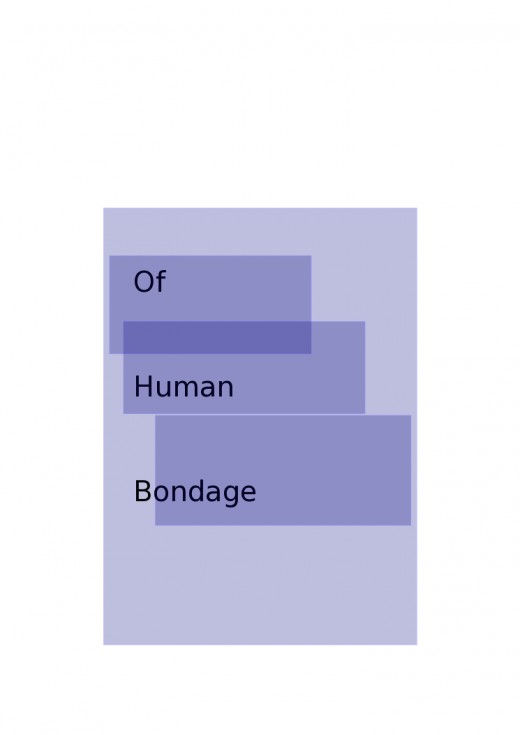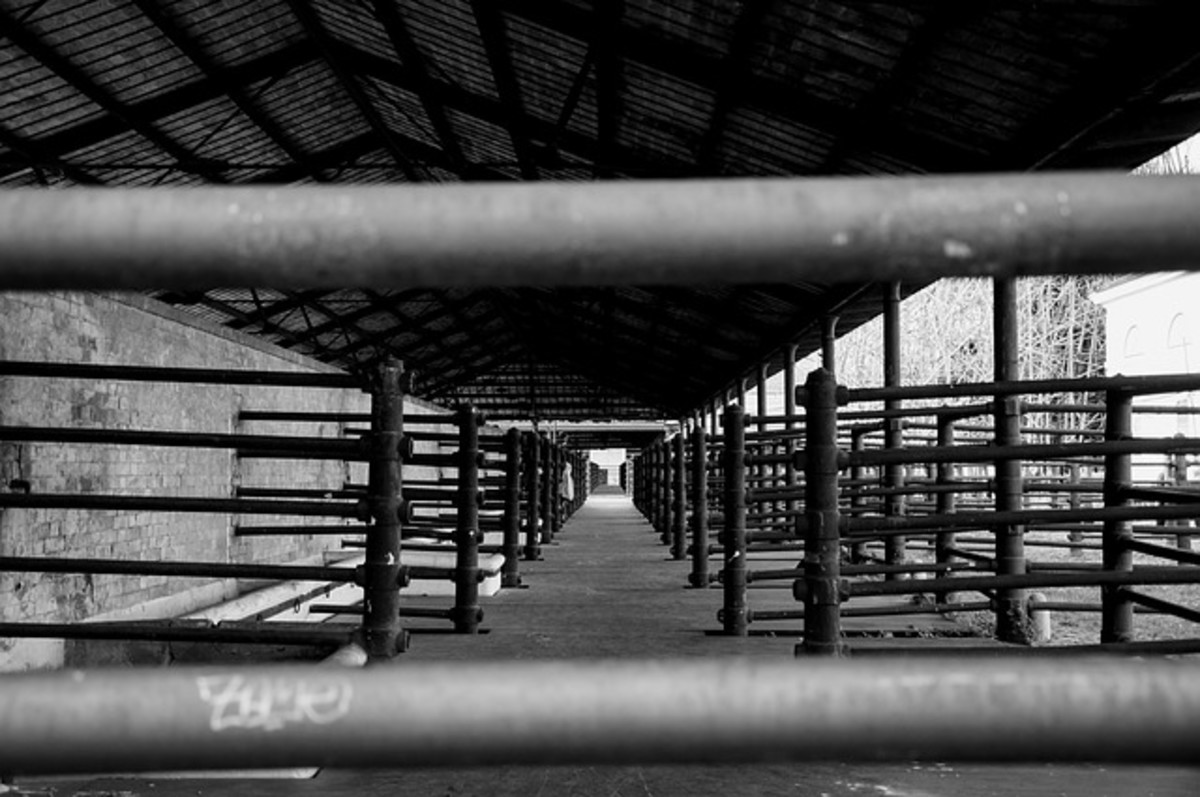Of Human Bondage: Parallels Between Bette Davis' Characterization and Somerset Maugham

Intro
Two years ago, W. Somerset Maugham's novel, Of Human Bondage made a centenary. 17 years on, the film version will make its own 100-year anniversary and what a better time than now to anticipate it since by that time, Mildred, the heroine played by Bette Davis, will be, metaphorically speaking, still in her lovable early twenties, just turning her 24!
It is strikingly easy to fathom the juxtaposition between Of Human Bondage, the movie and the original, Of Human Bondage, the novel. The secret is thanks to the light treatment of the long novel by a shorter film. In this respect the spotlight is on Bette Davis' first serious role, in the 1934 RKO Picture release where she mysteriously didn't bag an Academy Award for best actress for a shrewish role many would disdain. Parallels with the original include painters' fascination with nudes, dandyism and mores of the day that the novelist, Somerset Maugham championed: in the novel there are the Paris artists' studios for models, which finds hints in the studio that Philip occupies with Mildred, in the black and white film, where she tears away the pictures of the raiment-free women on the wall while shredding him verbally with her cockney character. The parallels don't clip there for in Somerset's character world, letters from gentlemen to ladies, benefactors to benefactresses and courtesans to lovers, besides inheritance deeds and bonds are all available on the screen as devices of continuity.
So, the question is, did Bette Davis (as the unforgettable wheel of the movie) do justice to Maugham, the author? We find out next in a number of lifelike sub-contexts:
The Climax: Now
In the novel, the plot reveals the linear degeneration of the character Mildred, perhaps with the most touching part of the climax being where the medical student, Philip, after a long lapse of years, sees and approaches her as a memorable face-turned-courtesan prostituting in the streets. In the movie, on the other hand, the ending is a pastiche of light illumination on the deteriorating condition of Mildred, perhaps with the greatest point being where the viewer finds her bleary-eyed in her room unable to wake up from a lethargy. At once, even as Philip is barred from entering her room to view her, the tearing apart of papers in her clinical records reveals all: her demise. Even without touching on her sexual escapades, the relentless cough she reports to Philip in that final scene reveals what she hints as a genital disease, and ultimately, even without depicting her courting clients in the red light district, the movie summarizes all in one final moment of truth.
Therefore, the climax in the movie, while different from the long realism of Maugham's original, does not lose the didactic direction of the original of being in bondage to life(?) and its foibles.
The Midpoint: Then
In the novel, tell-tale signs of the descent into a point of no return for Philip go a notch higher when he fails his medical exam out of his endless thoughts on a not-so-beautiful waitress (with memorable eyes, just to add, in the film). In the cinema version, the sunset of both Philip and Mildred have a reconnaissance when, just before he fails his medical exam, he draws a version of her while she hurriedly talks to a suitor in the hotel, and she comes and does not acknowledge her picture but nevertheless takes it knowingly, and hides it before accepting to come to a reluctant theatre meet. Even as he goes ahead and buys a ring for her and still Mildred reveals stoically and indifferently-and you might say-meanly, that she is engaged for marriage, one might as well conclude that the movie cuts the novel's story short by bringing the crisis, in a few edits, into an interconnected hell.
Therefore, the winning formula, as always in the movie, to bring back Maugham's story into context even after excising much of the plot off it, is to use Bette Davis' great acting to save the day. Her symbolic burning of Philip's effects, her tirade of loquacious cockney eloquence when she discovers Philip has no intention to love her anymore, and her periodical very pitiful returns to him, and final bankrupting of Philip so that he has to live in his bride-to-be's apartments, are all parts that no one else but Davis could have compressed into less than 90 minutes of acting and still pull off a tome of 500 pages worth of story.
In The Beginning: Past
The genesis of the story or the point where human bondage ushers in is Maugham's fascination with artists and the love of their lives. Just like he did in the Moon and Sixpence, the story of the painter Paul Gauguin who went to live with natives in Tahiti, leaving his wife behind in cognition of his love for tropical art, so does Maugham cast Philip in a Paris where, as a green Englishman, he cannot survive without art patronage. And so, the beginning of his bondage to art is his failure to sell, and as a patron says, his lack of talent, and eventual sailing back to London for fulfillment of his medical career. Even here, he can't cast behind his passion for he goes ahead to meet a girl, a waitress, at that, whom he paints.
The Mildred of the movie does not give a pair of pins what he wants with her and she even states, sometimes with her back symbolically turned to him, that if 'he can't take her to the theater, someone else will always do.' So cold, yet so mature when said in the accented acting voice of Bette Davis!
So, even as one clearly knows that the story will lead to nothingness, and even as the movie struggles to make things seem subtle and Davis keeps her surprise returns to the apartment for aid which she gets unthankfully, even as she metamorphosis into a bittersweet vision in Philips eyes to the point where when her baby dies and she tells him, he really has no choice but call it good riddance, a thing he could't have said before, it is clear that the picture has its mainstay in Davis because, in her, Maugham is incarnate.
In Denouement
Bondages are a matter of commitments be they short or long as Norah hangs onto Philip as Philip reins on a sloppy hold on Mildred and so on….in book and motion picture.
It suffices to end with the note that any movie with Bette Davis in it, no matter how mediocre, as Graham Greene once noted, to paraphrase, it is always great. One can go through it. It is a miracle when she acts. Therefore, even as she went ahead to bring out her greatest performance in All About Eve, she had already done, nearly twenty years earlier, what I consider a best performance in Of Human Bondage. Maugham had her in his sights when he penned the novel, and incidentally, he did laud her performance in the flick.



